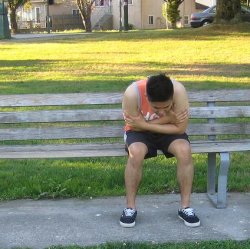Swine flu refers to influenza in pigs. Hog farmers and veterinarians are usually affected by the virus. Swine flu is caused by the H1N1 strain of influenza virus. It causes respiratory infection in humans.
Swine flu can be transmitted by inhaling or ingestion droplets that contains the virus usually from people sneezing or coughing. Symptoms of swine flu are the same as the regular influenza.
Symptoms of swine flu
- Runny or stuffy nose
Get plenty of rest and sleep for fast healing of the condition. - Fever and chills
- Sore throat
- Cough
- Watery or red eyes
- Fatigue
- Diarrhea
- Body aches
- Nausea and vomiting
- Headaches
The H1N1 flu symptoms usually develops 1-3 days after exposure to the virus
Causes
The influenza virus infects the cells that lines the nose, throat and lungs and enters the body when inhaling contaminated droplets or getting the virus from contaminated surfaces to the nose, eyes and mouth
Treatment
- Get plenty of rest and sleep for fast healing of the condition.
- Drink plenty of liquids such as water, juice and warm soups to prevent dehydration.
- Take the prescribed over-the-counter pain medications such as acetaminophen or ibuprofen to lessen the inflammation and pain.
- Take the prescribed antiviral medication to treat the flu immediately after the person is infected with the virus at least within 2 days. It prevents the growth of the virus in the body and makes the symptoms less severe and reduces the risk for developing serious complications.
- Perform regular exercises such as walking
Tips
- Stay home if sick. Avoid exposure to other people to prevent the spread of the disease. Stay home at least for 24 hours after the symptoms are gone.
- Maintain personal hygiene by thoroughly and frequently washing hands using soap and water. Another alternative is washing hands using an alcohol-based sanitizer.
- Cover the mouth when sneezing or coughing. Sneeze or cough into a tissue to prevent contaminating the hands.
- Avoid contact with other crowds if possible to prevent the high risk of developing complications from flu, especially children below 5 years, older than 65, pregnant and suffering from chronic conditions such as asthma.
- Avoid swine barns at seasonal fairs.
- Avoid exposure to any members of the household suffering from swine flu.
- Drink plenty of liquids to prevent dehydration
- Avoid being stressed.
- Eating a balanced diet.
- Minimize touching the nose, eyes or mouth.
- Avoid going to unhygienic places and using public restrooms.

